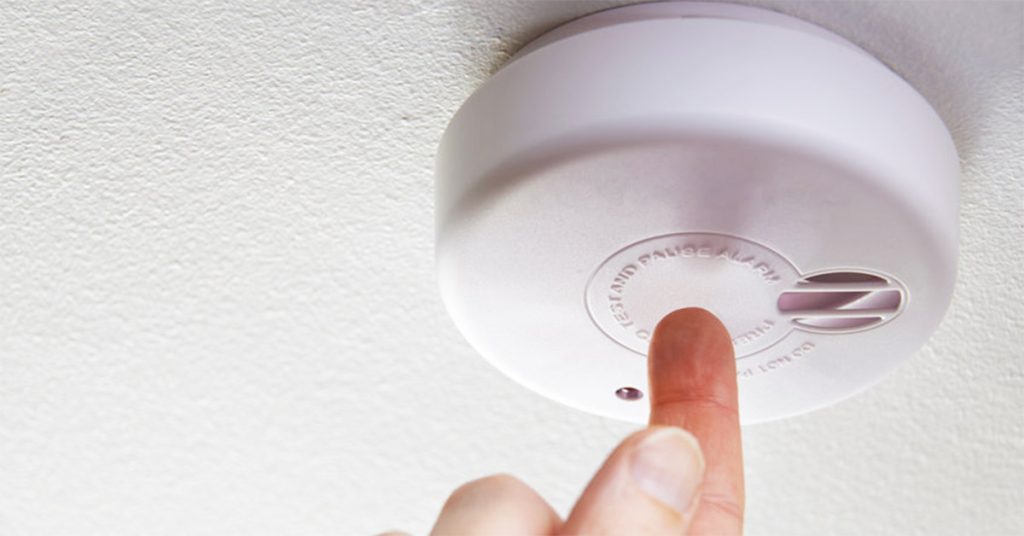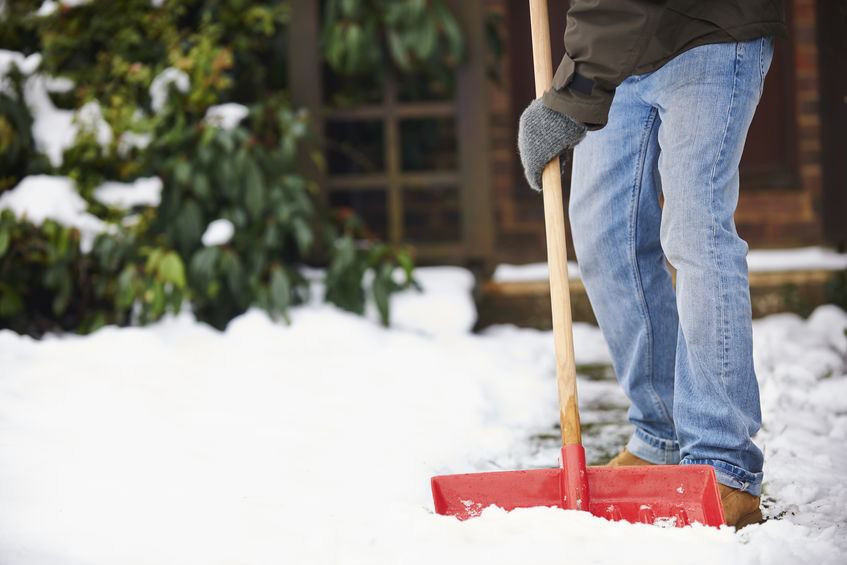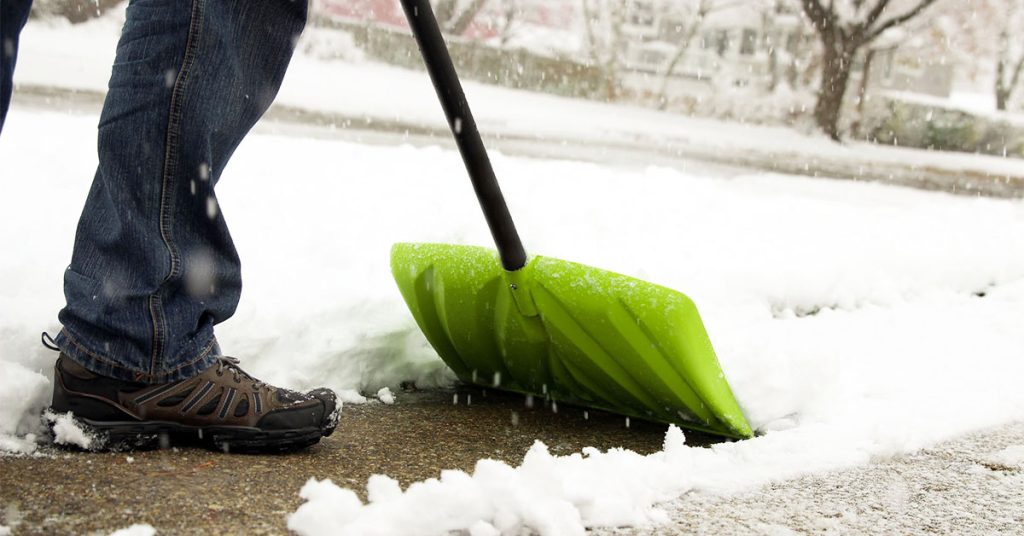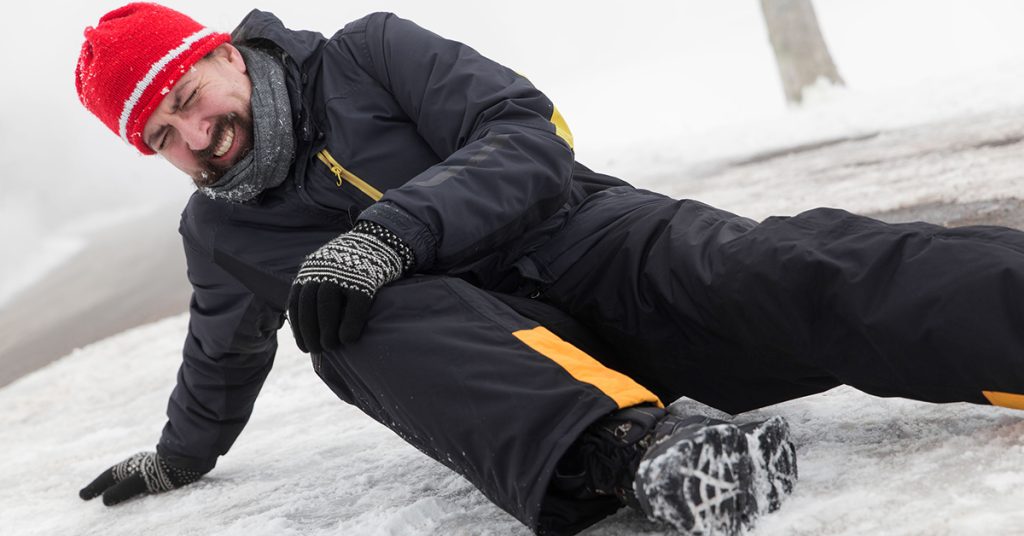Posts Tagged ‘“Boston premises liability lawyers”’
Take a Simple Step for Safety: Test Your Smoke Alarms When You Set Your Clocks Back This Weekend

Protect your family and home. Test your smoke alarms when you set the clocks back for Daylight Saving Time on Nov. 7.
Stay vigilant about smoke alarms and protect your family this winter. This coming Sunday – November 7th – Daylight Saving Time ends. As you set your clocks back, we encourage you to also test your smoke alarms and carbon monoxide detectors.
It is critical that your smoke alarms work as we approach winter, when we spend more time indoors, cook for the holidays and there is a greater risk for home fires and fire injuries.
Half of All Massachusetts Fire Deaths Occur in Homes Without Working Smoke Alarms
In 2020, half of all Massachusetts fire deaths occurred in homes without working smoke alarms, the state fire marshal’s office announced earlier this year. This was based on preliminary data.
End-of-year data showed there were 29,641 fires across Massachusetts in 2020, a 16 percent increase over 2019. The number of civilian deaths rose from 39 in preliminary data to 44, up from 42 in 2019. There were 245 civilian injuries and 594 fire service injuries in 2020. Smoking was the leading cause of residential fire deaths in Massachusetts, followed by electrical and cooking fires.
The traditional reminder has been to replace your home’s smoke alarm batteries twice a year – at the start and end of Daylight Saving Time. You should still do so if your smoke alarms operate on regular batteries.
But in 2016, the state of Massachusetts updated the fire safety requirements, steering more homeowners toward newer smoke alarms designed to last 10 years without a battery change. So not everyone needs to change their smoke alarm batteries.
Testing is still essential. If a fire breaks out, you may have seconds to escape and your smoke alarm has to work for you, your family, loved ones and roommates. Commit to test your smoke alarms and carbon monoxide detectors monthly and twice a year when you change the clocks for Daylight Saving Time. This is a simple step – just press the test button.
Read Your Product Manual and Learn the Sounds of Your Smoke Alarm
Read your smoke alarm product manual. Make sure you recognize how the alarm sounds – when it chirps to alert you of failing batteries and in an actual emergency. If you do not know, search for the product information online or call the manufacturer. The Massachusetts State Fire Marshal’s office also shared safety tips as part of Fire Prevention Week earlier this month. The theme was “Learn the Sounds of Fire Safety,” the sound of your smoke alarms.
Involve other family members in this, especially older adults. Those 65 and older are highly vulnerable when fires break out, accounting for more than 40 percent of all fire deaths in Massachusetts during 2020, according to the state fire marshal’s office. Older adults may seem healthy, but they may suffer from a medical condition they haven’t shared or side effects to medication. Another potential barrier is untreated hearing loss.
One in three people between age 65 and 74 suffer from hearing loss, according to the National Institute on Aging. When they get older, nearly half of all adults age 75 and older have difficulty hearing. Step in and help older adults. Offer to take them to their primary care doctor and learn about smoke alarms for those who are deaf or have difficulty hearing.
Check for Smoke Alarm Recalls
Unfortunately, like other products, there are times when smoke alarms are recalled due to defect. In May 2020, the Consumer Product Safety Commission announced the recall of more than 220,000 Kidde TrueSense Smoke Alarms and Combination Smoke/Carbon Monoxide Alarms. These alarms were newer models, sold between May 2019 and September 2020.
When you test the batteries at Daylight Saving Time, you can check the Consumer Product Safety Commission (CPSC) website for smoke alarm recalls. Take time for this, even if you have registered your smoke alarm with the manufacturer. While you are there, check for product recalls involving unsafe winter heating products, including electric blankets, space heaters, children’s pajamas and other products. This is an easy but important step for safety. If you own any of these products, take the recall seriously. Remove the defective product from your home now so no one reaches for it on a cold night.
One Survey: Many Americans Are Not Testing Smoke Alarm Batteries
While this is a simple step, not everyone is testing smoke alarms. Earlier this year, a Consumer Reports survey found roughly one-third of all Americans could not recall when they last tested their home’s smoke alarm. About 25 percent could not recall replacing their smoke alarm batteries, while more than half could not remember when they had installed the devices. But this doesn’t have to be the case. You can easily test your smoke alarm and pull out the product materials right now.
About Breakstone, White & Gluck – Boston Personal Injury Lawyers
At Breakstone, White & Gluck, our Boston personal injury lawyers have over 100 years combined experience representing those injured in premises liability accidents, construction accidents, structure fires and fires caused by landlord neglect. Our attorneys have represented clients, including college students, tenants and their families after serious injuries and wrongful death in fires.
If you or a loved one have been injured or killed in a fire, learn your legal rights. Contact our attorneys at Breakstone, White & Gluck at 800-379-1244 or 617-723-7676 or use our contact form.
Property Owners Have a Responsibility to Shovel in Massachusetts
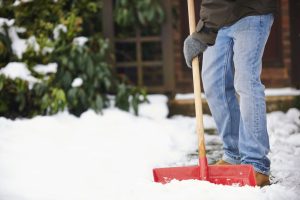 After our first nor’easter of the season, much of Massachusetts is now covered in a cold sheet of snow and ice. A total of 12.5 inches fell last weekend in part of Worcester County, while Middlesex County saw 2 to 7 inches of accumulation, according to MassLive.
After our first nor’easter of the season, much of Massachusetts is now covered in a cold sheet of snow and ice. A total of 12.5 inches fell last weekend in part of Worcester County, while Middlesex County saw 2 to 7 inches of accumulation, according to MassLive.
You may have shoveled, yet the work isn’t over. In these harsh New England winters, property owners must remember their legal responsibility to use reasonable care to keep their property safe. If you neglect to remove snow and ice from your driveway, someone could be injured and you could be held financially liable.
Commit to inspecting your property daily after a snow storm. Insect your driveway, walkways, roof and gutters. Go outside and walk from your front door to the end of your driveway and back. This is how your guests, mail carriers and package delivery professionals approach your home. This route needs to be safe.
A Property Owner’s Responsibility in Massachusetts
In Massachusetts, property owners have a duty to use reasonable care in clearing snow and ice so no one is injured. Papadopoulos v. Target Corp., 457 Mass. 368 (2010).
Papadopoulos v. Target Corp. changed more than 100 years of common law in Massachusetts and abolished the distinction between “natural” and “unnatural” snow and ice accumulations in premises liability actions. Property owners now have a duty to use the same reasonable care in treating snow and ice as they do other property hazards. It does not matter how the snow and ice accumulated. They owe a duty to all lawful visitors to use reasonable care to maintain their property in a reasonably safe condition.
How Often Should I Check My Driveway?
The best way to prevent a snow and ice injury is to treat snow regularly and promptly in the hours after a snowstorm, then also throughout the winter. This includes your driveway and walkways, as well as areas where cars, pedestrians and delivery trucks come in and out of the driveway. This activity can cause melting and refreezing for weeks after a storm.
Be aware of freezing and melting on other areas of your property as well, such as under roofs and gutters. Pay the most attention to your front step so delivery services and guests can safely access.
What if a Snow Plow Throws Snow on My Driveway?
It is still your responsibility to remove snow pushed onto your property so no one is injured. There is nothing more frustrating than shoveling your driveway, only for the plow to come back around a few minutes later. Again, the most effective response is to act quickly. Snow will be easier to shovel before it freezes to your driveway.
What If I Am Injured on Someone Else’s Property?
Use caution whenever you visit friends and family during the snow season. Try to find out if they have shoveled and salted their driveway and walkway before you visit. If you arrive and their driveway is iced over, consider visiting another time.
What if I am Injured on a Business Property?
Grocery stores and other businesses also have a responsibility to clear snow and ice and keep parking lots and other areas safe for travel after a snow storm. But there are times when snow and ice is left to accumulate or is not fully cleared. There are often several parties involved in commercial lease agreements, including a landlord, tenant and property management company. These parties may not always properly communicate or the party in charge of snow removal may be trying to save money. The party in charge may also not be experienced in hiring snow removal companies or realize the work involved.
When a business is negligent in clearing snow, slip and fall accidents can happen in parking lots. Another hazard is store floors and entrances. When snow melts, water accumulates and someone could slip and fall. A third danger is icy railings. Those in charge of the property have a responsibility to regularly inspect and remove snow and ice from railings, so a visitor doesn’t unknowingly reach for one and fall.
Since businesses can be open extended hours, property owners have a responsibility to address snow and ice accumulation promptly.
Be Aware of High Risk Areas for Mail Carriers and Package Delivery Professionals
Walk to the end of your driveway and make sure mail carriers and package delivery professionals can safely reach your front steps or mailbox.
Help the Elderly in Snow and Ice
The elderly are the most vulnerable to snow and ice injuries. If they fall, they are more likely to suffer long-term injuries. You can be proactive and prevent an injury by asking elderly friends, neighbors and family members if they need any help or anything at the grocery store. Encourage them to stay inside in the hours after a snow storm.
After a Snow and Ice Accident
If you are injured by a snow and ice accident, a doctor should evaluate you to determine if you fractured bones or suffered a concussion or other injuries.
If you were seriously injured, contact a lawyer and learn your legal rights. Contact a lawyer promptly. Under Massachusetts law, there is a limited time to notify a private property owner about injuries in cases involving snow and ice.
Free Legal Consultation – Boston Snow and Ice Accident Lawyer
With 100+ years combined experience, Breakstone, White & Gluck has been consistently recognized as a top-rated Boston personal injury law firm. Our attorneys have been recognized by Top 100 New England Super Lawyers, Top 100 Massachusetts Super Lawyers and Massachusetts Super Lawyers, in the specialties of personal injury and medical malpractice. The firm has also been recognized by U.S. News – Best Law Firms with Tier 1 rankings in personal injury and medical malpractice.
For a free legal consultation, contact Breakstone, White & Gluck at 800-379-1244 or 617-723-7676. You can also use our contact form.
Safety Reminders for College Students and Others Renting Apartments in Boston

College students and other renters have the right to live in safe apartments.
September has arrived. In Boston, college students returned a few weeks ago and the focus has been preventing the spread of COVID-19. But apartment safety is another important topic – for college students as well as other renters.
If you rent an apartment, your safety is paramount, and that has not changed during COVID-19. We encourage you to inspect properties before signing leases and moving in. Speak to your landlord, your college or your family if you find yourself in unsafe conditions.
At Breakstone, White & Gluck, our personal injury lawyers are experienced in cases involving landlord negligence resulting in the injury of our clients. In Allston and other parts of Boston, we have represented college students and other renters who have been very seriously injured in falls and fires. These are devastating stories, more so because landlords neglected their responsibilities to maintain safe premises.
During COVID-19, there is a very real risk that landlords may fall behind or neglect to maintain their properties. If you rent and see a hazard, be prepared to speak up so no one is injured.
We share a few safety tips and resources:
Notify Your Landlord of Hazards Promptly
If you see a hazard, notify your landlord or the property owner. We know it can be overwhelming to be 19 or 20 years old, living on your own for the first time and stressed about approaching a landlord. Honestly, this is never easy – even for renters with a few years of experience. But if you need help, you should reach out to your parents, family members or someone else you trust. Your safety – and the safety of your roommates and others in the building – is the priority.
When you contact your landlord, do so in writing. Describe what appears unsafe and email a photo. Ask them to come inspect the problem. If you do not make any progress, call your college or the City of Boston’s Inspectional Services Department.
Thoroughly Inspect Your Apartment Regularly
If you recently signed a lease, you likely inspected the apartment first. Your apartment may be in good condition and look well-maintained. But things can break. Safety hazards can emerge with use. Monitor conditions throughout the year so no one is injured.
If you are in the middle of a lease or have rented through COVID-19, you should also conduct a thorough inspection with a new eye.
You may see hazards you have learned to live with. A few examples include broken handles, railings and staircases. Collapsed wood on porches or decks, which will eventually rot away. Floors which are so worn you have already slipped on them. We will stop here. You cannot live with these things. Doing so could result in an accident – and will likely result in you losing part of your security deposit down the road. Alert your landlord now.
Never Forget the First Step of Safety: Smoke Alarms
Smoke alarms are the most basic tools you have to protect yourself. Make sure your apartment has working smoke alarms and carbon monoxide detectors at all times. Regularly replace the batteries and test them.
Check Out These Websites and Resources for Tenants
Know Your Rights When You Rent in Boston
City of Boston Inspectional Services
Attorney General’s Guide to Landlord and Tenant Rights
A Warning About Fake Apartment Listing Scams, WCVB-TV Boston
Injured by a Landlord’s Negligence in Massachusetts? – Free Legal Consultation
With more than 100 years combined experience, Breakstone, White & Gluck and our Boston personal injury lawyers fight for the rights of those injured by negligence and wrongdoing in premises liability cases. Our attorneys have been consistently recognized among the best lawyers in Massachusetts and New England by Super Lawyers and Best Lawyers in America. We provide experienced representation to those injured by the negligence of property owners and landlords, including in falls, porch collapses, fires and elevator accidents.
If you have been injured by unsafe conditions in an apartment, learn your legal rights. Call Breakstone, White & Gluck at 800-379-1244 or 617-723-7676 or use our contact form.
Cautionary Tales about Snow and Ice Accidents in Massachusetts
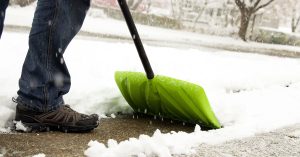
As we negotiate the season’s first snow, there are many warnings: give yourself extra time, drive slowly and clear your car, front steps and driveway.
Remember these precautions in coming days and weeks, especially if you are a property owner. In Massachusetts, property owners have a duty to use reasonable care in clearing snow and ice so no one is injured. Papadopoulos v. Target Corp., 457 Mass. 368 (2010). Where there was once a distinction between “natural” and “unnatural” snow accumulations, there is no longer. The best way to keep your property safe is keep up with each snow fall. Frequently inspect your property throughout the season.
Snow and ice injuries can be serious, requiring months or more to heal. Shoveling your driveway is your responsibility as a property owner and the right thing to do. No one wants to bear the guilt of causing another person injury. And no one wants to be held liable for someone else’s injury and have to pay financial damages.
At Breakstone, White & Gluck, our Boston personal injury lawyers have extensive experience handling premises liability cases, including snow and ice injuries caused by negligence. We share our cases as cautionary tales.
Slip and Fall on Icy Ramp at Commercial Property, $825,000 Settlement
Attorney Marc L. Breakstone successfully negotiated an out-of-court settlement for a client who suffered a serious fall on an icy handicap ramp. The ramp was on a commercial property. Our client suffered a trimalleolar fracture with ankle fusion and had to undergo multiple surgeries. Photos gathered in the case showed part of the handrail was actually missing prior to the accident and there was ice from a downspout. The case settled in favor of our client after two days of mediation. Attorney Breakstone had engaged an engineering expert and meteorology expert to testify had the case gone to court.
Heavy Snow Collapse Causes Traumatic Brain Injury, Undisclosed Settlement After 4th Day of Trial
Attorney Ronald E. Gluck successfully negotiated a settlement for our client, who was injured when heavy snow collapsed suddenly from a commercial warehouse roof onto her vehicle. The defendants – the property owner, the property management company and the company which leased the warehouse – had neglected their duty to clear the snow and provide a safe environment. The case went to Middlesex Superior Court, where Attorney Gluck presented testimony from multiple expert witnesses, including a neurologist and a meteorologist, in support of his client’s case. Each day, the defendants made an offer to settle the case. After the fourth day, Attorney Gluck’s client accepted an offer that represented an 800 percent increase from the pre-trial offer.
Free Legal Consultation – Breakstone, White & Gluck
Breakstone, White & Gluck brings more than 100 years combined legal experience to those injured by negligence in Massachusetts. We represent clients across Massachusetts, including in Boston and Cambridge; Saugus and the North Shore; Brockton and Plymouth; Cape Cod; Framingham and MetroWest; and Worcester and Central Massachusetts.
If you have been injured as a result of someone else’s negligence, learn your rights. Contact Breakstone, White & Gluck for a free legal consultation with one of our personal injury attorneys. Call 800-379-1244 or 617-723-7676. You can also use our contact form.
Attorney Marc L. Breakstone Reaches $2.15 Million Settlement with Shopping Plaza Over Fatal Crash in Unsafe Parking Lot

Attorney Marc L. Breakstone has settled a wrongful death case involving a crash at a shopping plaza which failed to protect pedestrians. He has settled the case for the victim’s family for $2.15 million.
The settlement is a reminder that retail property owners have a responsibility to take adequate steps to protect customers and other pedestrians in Massachusetts.
Our client was a 73-year-old man who was killed in 2015. That November, he had been leaving a store with a friend and was hit and killed by an 87-year-old driver. The driver had suddenly and unexpectedly accelerated through the parking lot and onto the sidewalk. Our client died immediately from his injuries, while his friend and another pedestrian were also injured.
Attorney Breakstone conducted a thorough investigation into the crash, which was captured on multiple surveillance cameras. Evidence suggested the elderly driver hit the accelerator instead of the brake.
As his investigation developed, Attorney Breakstone determined the owner of the shopping plaza had failed to provide adequate protections for pedestrians in the spot where our client was killed. This was significant because the owner had taken care to set up protections in other areas. Over the years, more than 30 bollards had been placed at the rear and side of the shopping building. Bollards had also been installed in front of another retail store, but not where the accident occurred.
Had the case gone to trial, Attorney Breakstone was prepared to call an engineering expert to testify that this was a breach of industry standards for providing safe walkways.
Read more about this case on our website.
About Attorney Marc L. Breakstone
Attorney Breakstone has established a reputation as one of the top personal injury lawyers in Massachusetts and New England. He has been recognized as a Top 100 New England Super Lawyer, a Top 100 Massachusetts Super Lawyer and a Massachusetts Super Lawyer in Plaintiff’s Medical Malpractice. Read his bio.
Fourth of July Water Safety Tips
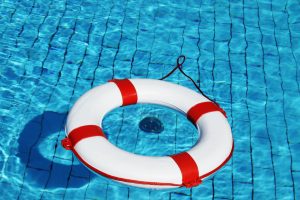
Tips for swimming safely in Massachusetts pools, lakes and ponds and ocean beaches.
We wish our friends, families and colleagues a wonderful Fourth of July holiday week. Whether you enjoy the fireworks in Boston or travel to Cape Cod, we hope you enjoy a more leisurely pace, some good BBQ and a little time in the water. But before you swim, we urge you to remember the rules of water safety at all times.
Ten people die in unintentional drownings each day in the U.S., according to the Centers for Disease Control and Prevention (CDC). While young children suffer a high number of drowning deaths, swimmers of all ages are at risk during the holiday week and summer months, when we spend more time near the water. This is partly because of our water skills – many of us can’t swim or we overestimate our abilities. According to the American Red Cross, 80 percent of Americans claim they can swim, but just 56 percent can actually perform the five basic water competency skills.
Alcohol consumption also tends to rise during celebrations and gatherings. Alcohol consumption can interfere with one’s ability to interpret their surroundings and respond in any setting, but especially in extreme heat. Near the water, alcohol is particularly potent, factoring into up to 70 percent of deaths associated with water recreation, according to the CDC.
Swimming Pool Safety
Pools should be protected by four-sided fencing which stands at least four feet tall. Doors should be self-closing and self-latching. If you are a parent, avoid visiting homes with inadequate fencing because this is the first and most important line of defense in protecting your child against drowning.
Pools should also have anti-entrapment drain covers and safety release systems to protect children from drain entrapment. Ask pool owners where the drains are before you swim.
Watch children closely. Commit to avoiding distractions such as cell phones, conversation or grilling.
In general, beware of any activity which encourages you to move your gaze up, down or away from the pool. If a child is struggling in the water, they need an immediate response and they cannot call out to you if they are starting to drown.
Never consume alcohol at the pool.
Swim with young children and keep them within arm’s reach.
When using an unfamiliar pool, take a test swim on your own without your child.
Walk into a pool using steps or a ladder, rather than diving.
When you are done swimming, if you have young children, leave the pool area and make sure it’s properly secured.
Water Safety in Lakes and Ponds
If you are swimming, look for a public or private beach staffed by lifeguards.
Adults and children should wear life jackets when in lakes and ponds, on a boat or a dock.
Do not consume alcohol at the lake or pond.
Always swim with a friend or family member.
Closely supervise young children to prevent drownings. At lakes and ponds, there are more elements to consider, including shifting sand and dark water.
Enter the water feet first from a beach or other areas marked as safe entrances.
Only dive in areas which are clearly marked as safe for diving. Jumping in feet first is safer.
Never dive from bridges or boats.
Be responsive to water and weather conditions. Leave the water immediately when there is thunder and lightning.
Pay attention to boats, personal watercraft and other swimmers on the pond which could interfere with your ability to swim safely.
Water Safety at the Ocean
Do not expect your family to be ready for the beach just because they have experience in a swimming pool or even a lake or pond. The ocean is much more challenging and unpredictable.
Choose beaches staffed by lifeguards. In addition to responding to emergencies, lifeguards can share information about water conditions, such as the tide schedule, vegetation, marine animals and fish.
Just like every lake and pond, remember every beach has different conditions.
Swim with young children.
Never swim alone; swim with a buddy.
Learn how to identify a rip tide and how to respond. According to the American Red Cross, swimmers are advised to swim parallel to the shore line until they are free from the rip tide. When swimmers can’t do this, they can attempt to just float and tread water until they have moved out of the rip tide.
Leave the water immediately if you hear thunder or see lighting. You should also head back to shore if you are traveling in a boat. If you can’t return to shore, lie in the bottom of the boat or shelter in the cabin if you can.
About Breakstone, White & Gluck
The Boston personal injury lawyers at Breakstone, White & Gluck are committed to providing clients with aggressive and thorough representation. We represent clients in all types of personal injury cases, including car accidents, bicycle accidents, pedestrian accidents, dog bites, swimming pool injuries and premises liability cases. For a free legal consultation, contact us today at 800-379-1244 or 617-723-7676 or use our contact form.
Safety Reminders to Protect Children from Swimming Pool Drownings
 Each year, families head into summer, hoping for fun in Massachusetts. No one expects tragedy in the backyard swimming pool. But each year, children suffer drownings and near drownings. Drowning is a leading cause of death among young children in Massachusetts and across the U.S. Young children ages 1 to 4 face the highest risk, followed by older children and teens between the ages 10 and 19, according to the American Academy of Pediatrics (AAP).
Each year, families head into summer, hoping for fun in Massachusetts. No one expects tragedy in the backyard swimming pool. But each year, children suffer drownings and near drownings. Drowning is a leading cause of death among young children in Massachusetts and across the U.S. Young children ages 1 to 4 face the highest risk, followed by older children and teens between the ages 10 and 19, according to the American Academy of Pediatrics (AAP).
Breakstone, White & Gluck, a Boston personal injury law firm, encourages parents and property owners to prepare for the swim season. By acting now, before the temperature rises, property owners and parents can minimize the risk of drowning and injury this summer.
For Pool Owners
Secure Pool Fencing
Pool owners have a responsibility to secure their pools with a strong durable fence. This is your legal responsibility and one of the most important steps you can take to prevent a child from a swimming pool drowning. The Consumer Product Safety Commission recommends pool owners install a four-sided fence with a self-closing latch around all pools and spas. The fence must be at least 4 feet tall in Massachusetts and must meet certain requirements for vertical clearance and width for fence openings. Read our past blog on pool fencing or check out this guide on a local community’s website.
If you own a pool, consider adding some additional fencing, shrubs or a planter – or several blocking access to your pool door and fence. This is called a “layers of protection” strategy and the goal is to slow children down so an adult can intervene.
Inspect Your Pool Regularly
Make it a habit to walk outside and inspect your pool daily during the summer months.
Pool Alarms
Consider purchasing a pool alarm to monitor your pool area. There are different types of alarms so do your research and select the best for your needs. But remember, a pool alarm is a supplement to your strong fencing and regularly inspecting your pool.
Drains
Pool owners should regularly maintain drain systems and ensure they work properly. Spas should be covered and locked when out of use. Children should never wear loose accessories into the pool.
For Parents
Swimming Lessons
Parents who sign children up for swim lessons give them an advantage. Formal swimming lessons reduce the likelihood of childhood drowning by 88 percent, according to the USA Swimming Foundation. The American Academy of Pediatrics advises that swim lessons are beneficial for children around age 1 and older.
Supervision: Always Watch and Avoid Distractions
Parents should swim with younger children, practicing “touch supervision.” Keep them within your reach at all times on the shallow end. Even if you are not in the pool with them, still closely watch other children and teens carefully at all times.
Keep conversation with other adults at a minimum when watching children swim. Also set aside all distractions, such as cell phones. It takes much longer than you may realize to “quickly” check your cell phone, e-mail or social media accounts. In that time, a child could drown right in front of you, quickly and silently struggling.
If you are a pool owner and have guests over, be just as vigilant in watching children swim. Try inviting over small groups – just a child or two – to enjoy your pool to keep the visit manageable.
Supervision: The Danger of “Non-Swim Time”
Learn more about the dangers of “non-swim time.” Bode Miller and his wife Morgan have recently discussed this and it’s an important term for both parents and pool owners.
The Millers tragically lost their 19-month-old daughter last year when she drowned in a neighbor’s backyard swimming pool. The child had been in the house with her mother, siblings and other adults.
”Without it being an actual swim time, my awareness and my intensity around protecting her from water was let down,” Morgan Miller said in an interview posted on the American Academy of Pediatrics (AAP) YouTube channel.
The Millers also recorded this public service announcement for the AAP.
About Breakstone, White & Gluck
Breakstone, White & Gluck is a Boston personal injury law firm. We are committed to promoting safety for children and families through our Project KidSafe campaign. We encourage parents and caretakers to supervise children by the pool and near pools this summer. We also remind property owners that they have a legal responsibility to keep a safe pool area so no one is injured. Learn more about Breakstone, White & Gluck on our website.
Attorney Ronald E. Gluck Secures Financial Settlement at Trial for Client Injured by Snow Collapse
Settlement was reached during trial in Middlesex Superior Court
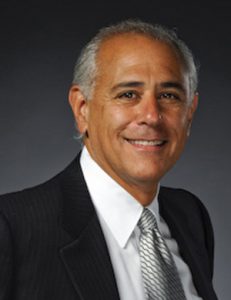
Attorney Ronald E. Gluck
Breakstone, White & Gluck successfully resolved a mild traumatic brain injury case for our client, who was injured when heavy snow collapsed from a commercial warehouse roof onto her vehicle. During the recent jury trial in Middlesex Superior Court, Attorney Ron Gluck presented testimony from multiple expert witnesses including a neurologist and a meteorologist, who testified in support of his client’s case.
Four days into the trial, the defendants made an offer that represented an 800% increase from the pre- trial offer and the case was settled at that time, just before it would have gone to the jury for deliberation. The settlement provides significant compensation for the injuries and damages that our client suffered.
Defendants
Attorney Gluck presented evidence showing that the three defendants – the property owner, the property management company, and the company that leased the warehouse – took no action to remove snow from the warehouse roof and awning following 20 to 24 inches of snowfall. Defendants had a duty to provide a safe environment for those legally visiting the property, such as our client who was making a delivery to the loading dock at the time of her injury.
Trial and Litigation
Through extensive depositions taken during the litigation it was proven that the defendant corporations failed to establish policies for snow removal from the awning, which was located directly above the loading dock, and that none of the employees of the defendant corporations had any understanding of whose responsibility it was to remove snow from the roof. As a result, snow remained on the awning after a historic snow storm and fell onto the liftgate of plaintiff’s vehicle which slammed down onto her head, causing her injuries.
At trial, it was proven that our client was instructed to park her car directly below the awning in spite of the fact that the defendant was aware that snow had fallen from the awning onto the loading dock on prior occasions and that they knew it presented a danger to anyone standing under that awning.
The evidence presented at trial established that our client suffered a traumatic brain injury which caused multiple symptoms including memory loss, mood alteration, dizziness, headaches and involuntary movement of her limbs. She underwent a long regimen of medical treatment for her injuries.
Settlement
At the beginning of the trial, the defendants denied that they were negligent and that their negligence caused our client’s injuries. But, as the trial proceeded and Attorney Gluck presented evidence, the defendants’ settlement offers grew each day until the case was settled on day four.
Breakstone, White & Gluck – Free Legal Consultation: 800-379-1244
Breakstone, White & Gluck is known for our exemplary trial experience. Not every case can be or should be settled out of court. When our attorneys go to trial, we do so with the respect of our colleagues and judges, bringing over 100 years combined experience before Massachusetts trial and appeals courts. We are known for our successful outcomes and for holding defendants, from individuals and insurance companies, to the MBTA and corporations, accountable for their negligence to our clients.
At Breakstone, White & Gluck, each of our partners has over 35 years of experience representing clients in serious personal injury claims in Massachusetts. Our attorneys have successfully presented our clients’ cases before the trial courts, the Appeals Court and the Massachusetts Supreme Judicial Court.
If you have been injured, we can advise you on whether you may have the legal right to seek compensation. For a free legal consultation, contact us at 800-379-1244 or 617-723-7676 or use our contact form.
Massachusetts Property Owners and Drivers Have a Responsibility to Clear Snow
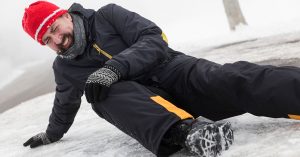 The forecast is calling for snow in Boston. Get your shovels ready. Clearing snow and ice isn’t just considerate. It’s a responsibility for property owners and drivers under Massachusetts law.
The forecast is calling for snow in Boston. Get your shovels ready. Clearing snow and ice isn’t just considerate. It’s a responsibility for property owners and drivers under Massachusetts law.
As personal injury attorneys, we have represented many people who have slipped on snow and ice across Massachusetts and never saw the danger or risk. Slips and falls can happen on both residential and commercial property, on walkways, parking lots and unsecured railings. These injuries can be long-lasting and often leave a person unable to work for a period of time. As a property owner, remember you are in control of your property. Shovel and monitor your property so no one is injured.
Massachusetts Property Owners Must Shovel
Massachusetts law recognizes that property owners have a responsibility to clear snow and ice – now. But this was not always true.
In 2010, the Massachusetts Supreme Judicial Court ruled in the case of Papadopoulos v. Target Corporation, SJC-10529 (July 26, 2010). This ruling changed everything for property owners and those who are injured on snow and ice.
In Papadopoulos, the plaintiff fell on ice in a parking lot outside a Target department store at the Liberty Tree Mall in Danvers. Claims were brought against the Target Corporation and Weiss Landscaping Company, the contractor in charge of snow and ice removal.
In its ruling, the Supreme Judicial Court abolished the long-standing distinction between “natural” and “unnatural” snow accumulations. In the past, the cause of snow accumulation was significant in determining whether those injured could bring a claim against the property owner. If snow and ice had naturally accumulated, the property owner may not be held liable for injuries. But property owners could be held liable for unnatural accumulations, such as snow thrown by a plow or shovel.
This was known as the “Massachusetts rule,” of natural accumulation. It was rejected by every other high court in New England, according to the Supreme Judicial Court’s decision.
With this decision, the Supreme Judicial Court wrote that property owners will now be held to the same duty of car to act as a reasonable person, regardless of how snow and ice forms to create a property defect.
For property owners, the takeaway is clear your driveways and walkways. Don’t let snow and ice accumulate. If you do, someone could be seriously injured and you could be held liable.
- Clear snow during and after snowstorms. Salt regularly. Start early into a snowstorm. After a snowstorm, monitor the ice accumulations on your property. Your property may also need attention for the next few days.
- Safety for your visitors. Approach your property by foot. Walk up your driveway and on any paths. Test how safe these areas are for your friends, family and delivery professionals.
- Porch safety. If you have a porch, keep it clear of snow and ice during the winter, so melting does not damage or weaken the wood. Remove furniture from your porch so you have no trouble shoveling.
Massachusetts Drivers Must Shovel, Scrape and Clear
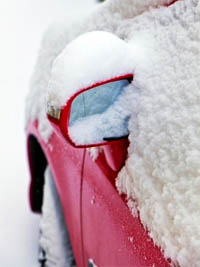 The Massachusetts Driver’s Manual states drivers should remove snow and ice from their vehicles before driving. We urge you to plan extra time. Clear all windows, windshield wipers, headlights and brake lights, so your vehicle is fully operational.
The Massachusetts Driver’s Manual states drivers should remove snow and ice from their vehicles before driving. We urge you to plan extra time. Clear all windows, windshield wipers, headlights and brake lights, so your vehicle is fully operational.
Take extra care to clear your vehicle’s roof. Failure to do so can send snow onto the car behind you, throwing the driver off or causing a car accident.
Drivers can be cited for failure to clear snow in Massachusetts. Police can fine drivers with impeded operation if they drive with snow-covered windows. This offense is punishable by a $40 fine.
When a driver fails to clear their roof, they may face a $200 fine for driving with an unsecured load. Drivers of commercial trucks, passenger trucks, vans and other vehicles traveling with snow and ice and other unsecured loads are highly dangerous, especially in winter conditions. Slow down and create space between you and any vehicle which makes you feel unsafe. Move to another lane. Write down the driver’s license plate and contact police.
A driver’s failure to clear snow can lead to a traffic citations, but also criminal charges and liability in a civil case if someone is injured.
Boston Snow and Ice Accident Lawyers – Free Legal Consultation: 800-379-1244
Breakstone, White & Gluck of Boston has over 100 years combined experience representing those injured by the negligence of commercial and residential property owners. We have expertise in handling cases involving snow and ice falls, porch collapses and landlord negligence. Our Boston personal injury attorneys have represented clients across the state of Massachusetts, including Boston, Brockton, Hyannis and Cape Cod, Fall River, Framingham and Worcester.
For a free consultation, call our office at 800-379-1244 or 617-723-7676 or use our contact form.
Massachusetts Superior Court Judge Questions Long-Standing “Transitory Water” Doctrine
 For decades, the Massachusetts courts have adhered to the “transitory water doctrine.” Simply put, under this common law standard, Massachusetts property owners have generally been shielded from liability in slip and fall cases when an injury results from normal use in wet weather. For example, a customer who wears boots in the snow and tracks water into a store, causing another customer to slip.
For decades, the Massachusetts courts have adhered to the “transitory water doctrine.” Simply put, under this common law standard, Massachusetts property owners have generally been shielded from liability in slip and fall cases when an injury results from normal use in wet weather. For example, a customer who wears boots in the snow and tracks water into a store, causing another customer to slip.
Established more than 40 years ago, the transitory water doctrine has set the legal standard for property owners. With no incentive to avoid liability, large commercial property owners were virtually free from worries about injuries caused by water tracked in from outside. Make no mistake: many people have been badly hurt right after crossing the threshold of a store, where the water and grime are most concentrated.
But this may change, after a recent ruling by Superior Court Judge Cornelius J. Moriarty II.
Judge Moriarty recently ruled in Holden v. Wal-Mart Stores East, LLP. In February 2016, the plaintiff alleged she stepped into the Wal-Mart in Hanover and slipped on water that had accumulated on the floor. The spot where she slipped was between the door and a mat, which would have prevented the fall, but which was located a few feet from the doorway.
Wal-Mart argued the transitory water doctrine barred the plaintiff’s claim and moved for summary judgment. But Judge Moriarty denied this motion, writing that the transitory water doctrine can no longer be considered good law after the Supreme Judicial Court’s 2010 ruling in Papadopoulos vs. Target Corporation, 457 Mass. 368 (2010).
“Whether Wal-Mart made reasonable efforts to protect the plaintiff against the danger is for the jury to determine,” Moriarty wrote. The judge reasoned that Massachusetts law is moving towards a unified standard or reasonable care for property owners, and that old common law exceptions are being eliminated.
In 2010, the Supreme Judicial Court of Massachusetts abolished the century-old double standard governing who could bring claims for injuries resulting from slips and falls on snow and ice. Now, property owners have a responsibility to use reasonable care in clearing snow and ice.
Prior to Papadopoulos, Massachusetts law distinguished between injuries suffered by falls on “natural” and “unnatural” accumulations of snow and ice. Previously, a property owner was not liable for injuries caused by slip and falls on natural accumulations, so property owners had no legal incentive to clear snow in some cases. But property owners could be held liable if someone was injured by an “unnatural” accumulation, such as snow dropped by a plow or ice from a leaking gutter.
The Holden case is not yet resolved. If the case does result in a verdict against Wal-Mart, then Wal-Mart will have the option of appealing the summary judgment decision.
We believe that this is a sensible decision by Judge Moriarty, and that a uniform standard of reasonable care under all circumstances for property owners will lead to greater safety and fewer personal injuries.
Free Legal Consultation: Breakstone, White & Gluck
With more than 100 years combined experience, Breakstone, White & Gluck specializes in personal injury and medical malpractice cases in Boston and across Massachusetts. For a free legal consultation with our attorneys, contact us at 800-379-1244 or 617-723-7676 or use our contact form.


